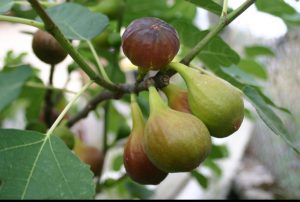In a developing country like Pakistan, post-harvest losses of citrus fruits are in the range of 23-38% as against 5-10% in developed citrus growing countries like Brazil, USA, Australia, Spain, Italy and Israel. Primary factors of post-harvest losses in citrus are mechanical, physiological, pathological or environmental factors are directly responsible. Mechanical loss is caused by careless handling during harvesting, packing, transportation, storage etc. Some insects and birds are also responsible for the mechanical injury. A significant portion of losses during post-harvest period is attributed to diseases caused by fungi and bacteria. Besides attacking fresh fruits and vegetables, these organisms also cause damage to canned and processed products. Environmental factors, temperature, humidity, composition and proportion of gases in controlled atmospheric storage also play an important role. High temperature and relative humidity favors the growth of micro-organisms which cause extensive damage to the produce. In-adequate harvesting facilities and rough handling results in bruising and increase possibilities of contact of the produce with the soil which leads to contamination with organisms and rotting done in fruits. Besides, use of improper machinery and equipments in mechanical harvesting cause serious losses. Inadequate storage facilities at the producing or marketing centers leaves the produce to the natural causes of losses i.e. Decay by organisms, respiration, transpiration and other biochemical reactions. Transportation and distribution are the important areas of post-harvest loss. Physical and mechanical injuries occur during transportation and distribution. Longer shipment and distribution period eventually cause heavy losses.
Citrus stands first in area and production among the world’s tree fruits. In Pakistan also, citrus fruits are the most important fruit crops grown on the area of 160,000 hectares with production of 1.5 MMT annually. Citrus fruit is grown in all four provinces of Pakistan but Punjab produces over 95% of the crop because of its greater population, favorable growing conditions and adequate water. So to attain maximum output we need to minimize these losses to achieve maximum yield and farmers also get more income for their efforts.
Pakistan is a have very fertile and variety of soil. It has variation in its soil and climatic conditions, which is very favourable for the production of fruits, vegetables, flowers and other crops. Mostly high valued fruits, vegetables and crops are produced in our country. Citrus is the most important in all other fruits for its production and trade. Citrus is the biggest group which is commonly produced in our country. This fruit have the high potential in exporting in foreign countries as well as full fill the needs of the country.
Pakistan is an important citrus producer across the globe. 10% of the fruit is exported, 2% is processed, 40% is lost in post-harvest process and remaining 48% is supplied to domestic markets. A lot of work is required to eliminate the poor harvest practices; Adding practical demonstration is the best way to persuade farmers to adopt new practices and post harvest technology.The magnitude of post-harvest losses can be minimized by proper cultural operations, harvesting, transportation, storage, waxing and drying etc. We have to do cultural operations which ensure the normal development of fruits and avoid infection of decay organisms will help to prolong their storage. Effective weed control in orchards increases the essential supply of water, nutrients, sunlight and consequently the normal development of fruits. Harvesting of citrus fruits should be done at cooler parts of the day and the produce should be shifted to the packing shade as early as possible. Washing and drying of citrus fruits before packing is also very important, especially of those which have been treated with poisonous chemicals. Grading is an important practice for successful marketing of citrus. They are graded according to their maturity, ripeness and general appearance as well. Packaging also has a great significance in reducing the wastage. Through proper packaging, freshness, succulence and flavor can be maintained for a longer period. Modern packaging containers involving use of corrugated fiber board boxes in lieu of conventional wooden boxes. Transportation and distribution of the fruits and vegetables are the most important areas of post-harvest losses. In Pakistan, the transportation of perishable commodities is in the most precarious stage. For local market, the produce is brought either by bullock cart or tractor trollies and injuries done to the product. Quick transport done in order to maintain the quality with minimum damage during transportation is very important for successful marketing of the produce. It is very important that horticultural produce reaches the market as soon as it is possible and at a time when the market needs it the most. Storage also play important role its main objective is to extend the storage life of fruits and vegetables and increase their period of availability. Pre-harvest sprays of chemicals like plant growth regulators (PGR) and fungicides resulted in better effect on reducing the color development and microbiological spoilage. Sesame oil, carbendazim, or ethephon treatment checked the decay losses due to Aspergillus niger, Alternaria citri, Penicillium digitatum and Penicillium italicum in citrus fruits. The treatment with 2, 4-D helped in maintaining color for longer duration during storage.
Mostly a few insect pests attack on harvested fresh fruits of citrus. In common damage due to larvae of insect e.g. fruit fly. The attack of insects on citrus fruits usually occurs before harvesting. Attack of insect pest in post-harvest fruit of citrus is a very difficult problem specially, at that place where fruits of citrus are needed to be stored.
About two or three week study show that the attack of insect cause quantitative as well as nutritive loss in citrus fruits. In first week discussion was done about the method and consult with different farmers. In second week we visit different field and store room where citrus is stored. In third week detail work was done about insect attack and there management.
The common pests which attack in citrus fruits are aphids (green bugs), red spider mite and mealy bug. These insect can be controlled with an adequate off-the-shelf spray. In some cases scale insects may settle on citrus fruits, and can, again, be easily killed with an appropriate insecticide spray, or by dabbing with methylated spirit. As dead scale insect can harbor viable eggs under it, any scales are best removed by rubbing or scraping gently with a fingernail.
The attack of different insect pest cause quantitative and qualitative loss in harvested citrus fruit product. Most insects suck the juice of fruits and ultimately reduced the quantity and quality of harvested citrus fruit. Most common insect is fruit fly which attack on pre-harvesting and post-harvesting of citrus fruits. Mites are also very common pest in case of citrus fruits specially, in harvested citrus. It is a very small insect but have the potential to economic loss in pre and post harvesting in citrus fruits.
There are many practices which can be used to control the citrus from the attack of insects.
Ø Avoid from the damage of fruit during harvesting.
Ø Also take care during transportation
Ø Use of low temperature in cold storage structures.
Ø Container should be free from eggs or larvae of insects.
Ø Stored room should be disinfected from insects and their eggs.
Ø Citrus fruit is coated with solution of potassium per magnate and water.
by:
Imran Arif1, Hannan Rashid1, Dr. Muhammad Anjum Aqueel1,3, Dr. Muhammad Adnan Shahid1,2 and Dr. Rashad Mukhtar Balal1,2
1 University College of Agriculture, University of Sargodha, Pakistan;
2 Cornell University, NY, USA
3 Imperial College London, Silwood Park Campus, Ascot, SL5 7PY, U.K.







